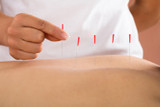Is Grip Strength an Indicator of Health?
Hand grip strength is more than just a measure of muscle power; it is increasingly recognized as a reliable indicator of health and longevity. Research has shown a strong correlation between grip strength and various health outcomes, including cardiovascular health, metabolic function, cognitive health, and even overall life expectancy. Weak grip strength has been linked to a higher risk of heart disease, sarcopenia, and reduced cognitive function, while stronger grip strength often signals better physical robustness and a lower risk of chronic diseases. This simple measure can serve as a powerful predictor of future health risks and offers insight into a person's overall well-being.
Grip Strength and Health Correlation
Hand grip strength is more than a simple measure of how strong your hands are—it is emerging as an important biomarker for overall health and longevity. Researchers have increasingly linked grip strength to various health outcomes, ranging from cardiovascular health and metabolic function to cognitive health and life expectancy. The correlation between grip strength and health is supported by numerous large-scale studies that indicate the strength of your grip can serve as a predictive indicator of underlying health conditions and future health risks.
Cardiovascular Health
One of the strongest correlations found between grip strength and health is its relationship to cardiovascular disease. Several studies, including the influential PURE study, have shown that weak grip strength is a reliable predictor of cardiovascular events such as heart attacks and strokes. The PURE study revealed that decreased hand grip strength was more predictive of mortality from heart disease than even elevated blood pressure, a long-standing marker for cardiovascular risk. Every 5 kg reduction in grip strength was linked to a 16% higher risk of death from any cause and a 17% higher risk of cardiovascular mortality.
The underlying connection may be that grip strength serves as a proxy for overall muscle health and function. Muscle mass and strength are closely related to metabolic health, and stronger muscles are often associated with better cardiovascular efficiency. Since grip strength is a simple and easily measurable marker of muscle function, it provides a window into the condition of a person’s cardiovascular system.
Musculoskeletal Health and Aging
Another area where grip strength shows a strong correlation is in musculoskeletal health, especially as people age. Grip strength declines naturally with age, but when it decreases more rapidly than normal, it can be a sign of sarcopenia—a condition characterized by the loss of muscle mass and strength in older adults. Sarcopenia is associated with frailty, increased fall risk, and reduced functional independence.
Additionally, grip strength and longevity are closely linked. Several longitudinal studies have found that individuals with stronger grip strength tend to live longer and remain healthier in later life. A stronger grip is also associated with a reduced risk of chronic diseases, including osteoporosis and arthritis, because it reflects better musculoskeletal integrity.
Metabolic Health
Grip strength is also connected to metabolic health. Stronger grip strength is often a marker of better metabolic function, including healthier glucose metabolism and insulin sensitivity. Conversely, weak grip strength has been associated with an increased risk of metabolic conditions such as type 2 diabetes and obesity. Because the muscles in your hands and forearms are part of the larger musculoskeletal system, they play a role in your body’s ability to manage energy and process nutrients.
By measuring hand grip strength, healthcare professionals can get a quick snapshot of a person’s metabolic health, which could signal whether further testing for conditions like diabetes or metabolic syndrome is warranted.
Cognitive Health
Emerging research is also exploring the connection between grip strength and cognitive health. Studies, such as the SHARE study, have shown that individuals with stronger grip strength tend to perform better on cognitive tests and have a lower risk of dementia and cognitive decline. The theory behind this correlation is that grip strength reflects overall physical robustness, and maintaining physical health supports brain function by promoting better circulation, oxygenation, and nutrient delivery to the brain.
In addition, weak grip strength has been linked to mental health issues such as depression, particularly in older adults. A decline in grip strength can indicate a reduction in overall muscle mass and fitness, which is often correlated with lower activity levels, isolation, and a loss of independence—factors that can contribute to mental health issues.
Overall Longevity
One of the most compelling reasons grip strength is gaining attention as a health indicator is its strong association with overall longevity. Numerous studies have demonstrated that individuals with stronger grip strength tend to live longer, healthier lives. It is not just an indicator of muscle strength but also a reflection of a person’s ability to maintain physical function as they age. Poor hand grip strength may indicate vulnerability to a variety of health conditions, including cardiovascular disease, metabolic disorders, and mobility limitations, all of which can contribute to a shorter lifespan.
Conclusion
In conclusion, hand grip strength is more than just a measure of muscle power, it is a powerful indicator of overall health and longevity. Numerous studies have shown that weak grip strength is associated with increased risks of cardiovascular disease, metabolic disorders, and cognitive decline, while stronger grip strength signals better physical health and resilience. As a simple yet effective predictor of future health risks, improving hand grip strength can enhance overall strength, reduce injury risks, and potentially extend lifespan. Paying attention to grip strength can provide valuable insights into one's well-being and serve as a crucial maker for assessing and maintaining long-term health.
Related Blog Post: Hand Grip Strength Testing Using a Hand Dynamometer
Related Products: Hand Dynamometers for Grip Strength Testing
Recent Posts
-
Acupuncture vs. Dry Needling: What’s the Difference?
At first glance, acupuncture and dry needling might seem identical. Both involve inserting thin need …Jun 11th 2025 -
What Is Dry Needling? A Modern Approach to Pain Relief and Muscle Recovery
Chronic muscle pain, tension, and restricted movement can significantly impact your daily life, sign …Jun 11th 2025 -
The Kinetic Chain and Its Importance?
The kinetic chain is a key principle in physical therapy, referring to the way muscles, joints, and …Apr 18th 2025



